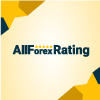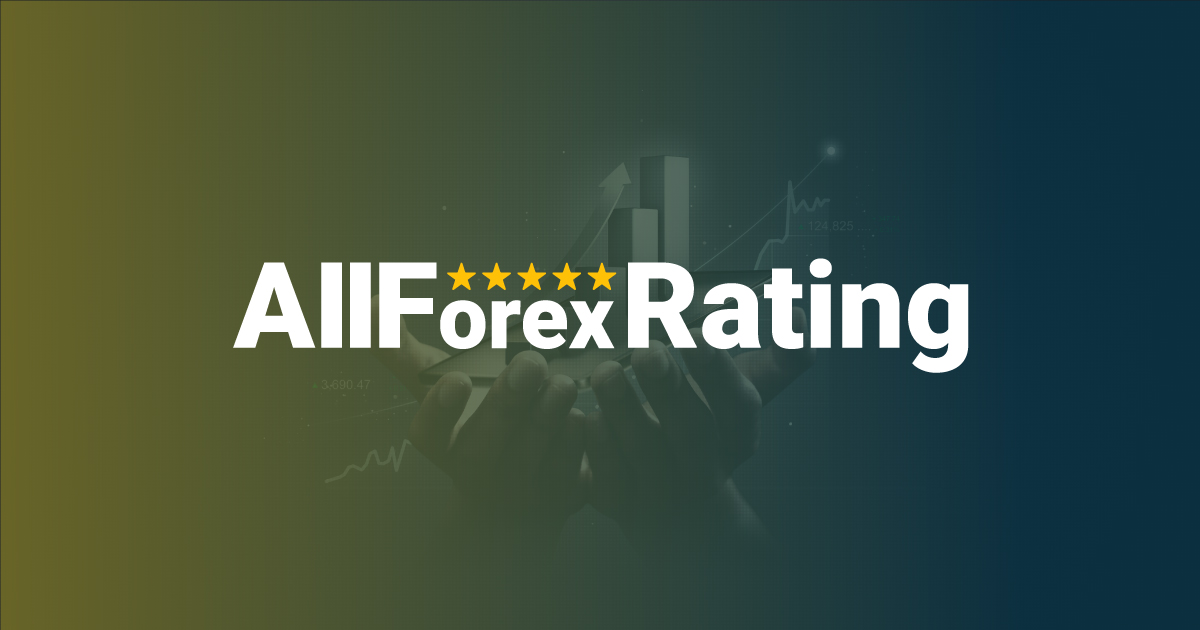How do Forex Brokers Make Money?
How do Forex Brokers Make Money?
The words Forex broker and retail forex broker are used similarly. A forex broker is a business or organization that arranges trades between a client and a supplier.
-

- by ALLFOREXRATING.COM
- 30th June 2022 | Post Views: 1377

In the forex market, traders transact currencies depending on whether the currency rises or falls in value. With approximately $ 5 trillion transacted every day, the forex market poses a significant amount of risk. Dealers must employ a middleman, such as a forex broker, to complete transactions.
Forex brokers receive revenue on brokerage charges, some of which are concealed, regardless of whether market participants win money or lose money. Knowing how do forex brokers make money can assist you in selecting the best broker.
What Is a Forex Broker?
The words "forex broker," and "retail forex broker,” are used similarly. A forex broker is a business or organization that arranges trades between a client and a supplier.
Before diving into the discussion of how a broker makes money in the forex market, let us know the role of a broker in the forex market!
A broker accepts and carries out orders to transact currencies. The over-the-counter market, where most forex brokers trade, is not governed by identical laws as similar financial transactions. As a result, the forex broker might not be bound by some of the laws that apply to trading activities.
How Traditionally They Can Make Money?
There are two major ways for forex brokers to earn cash.
- The first option is what we'll refer to as the "conventional" route. This is how the large bulk of traders make their livelihood, irrespective of the sort of forex broker they are.
- The second option will be referred to as the "alternative" route. Some forward-thinking forex brokers are now expanding out and employing alternative revenue techniques.
Following that, we will look at how to make money by a Forex broker.
The Exception
When a broker doesn't accept charges, his/her major source of revenue is the spread. Spread is the gap between the price of purchasing and selling a currency. Forex brokers provide far narrower spreads than retail transmitters of foreign currency.
The EUR/USD spread, for instance, is 0.12 when a trader purchases 1 euro for 1.03 dollars and sells it at 1.15 dollars. You will incur a loss of $12,000 if you purchase 1 unit ($100,000) from such an exchanger and sell it right away.
Another Variant of Generating Income
In the case of client service and education, certain Forex brokers may demand additional "bells and whistles." For instance, some brokers will provide signals, while others will provide a thorough evaluation. If you are prepared to pay an additional amount or have a larger account, some brokers are ready to provide even individual learning sessions and webinars.
However, these things are extremely infrequently required if you have a solid understanding of trading and sound money management strategies.
How Much Do the Majority of Forex Traders Earn?
According to Indeed, the typical trading income in the United States is $98 thousand per year, with $25,000 in incentives.
Do Brokers Earn from Traders’ Loss?
Even without the involvement of significant market participants, some brokers themselves serve as counter-parties. They deals executed on behalf of their customers. In this instance, a broker does make money when investors "blow" their investments. It occasionally concerns clients because it gives the impression that the broker has an incentive for their loss.
In spite of this fact, rapid order implementation is a benefit for those who like high spectral trade under such circumstances. Regrettably, few brokers take advantage of this system and give their clientele non-market estimations. Such businesses are short-lived, but an honest internal functioning can, nevertheless, be profitable without interfering with estimations.
Do Forex Brokers Defraud Their Clients?
Many individuals believe that a registered brokerage is always trustworthy and would never engage in forex broker fraud. In actuality, this is not the case. Brokers frequently utilize the certification to entice customers to engage with the dealer.
Alternative Revenue Sources
Whenever it refers to client service and marketing, certain Forex brokers may charge a premium for "bells and whistles." For example, some will provide indicators, while others would provide in-depth research. Yet others may provide individual instructional sessions and seminars for those paying more or have a bigger profile. However, if you grasp investing and effective financial planning procedures, you will seldom need all these items.
Traders do not have access to the genuine Money markets since bids must be significantly larger to operate in that field. Usually, the Forex broker will collaborate with a responsibility for paying to set up these transactions in smaller increments, enabling people to exchange back and forth.
Conclusion
Investors should consider investing in the forex market. They should tread carefully foreign-exchange traders have made a loss. As a consequence of deceptive get wealthy methods that promise high profits in the competitive marketplace.
The forex market is not unique in that rates are not standardized, and each broker has his or her quotation process. It is the responsibility of people that trade on this commercial value to assess their brokerage cost for verifying that they are getting a decent bargain.
Write a Comment
How do Forex Brokers Make Money?
The words Forex broker and retail forex broker are used similarly. A forex broker is a business or organization that arranges trades between a client and a supplier.

In the forex market, traders transact currencies depending on whether the currency rises or falls in value. With approximately $ 5 trillion transacted every day, the forex market poses a significant amount of risk. Dealers must employ a middleman, such as a forex broker, to complete transactions.
Forex brokers receive revenue on brokerage charges, some of which are concealed, regardless of whether market participants win money or lose money. Knowing how do forex brokers make money can assist you in selecting the best broker.
What Is a Forex Broker?
The words "forex broker," and "retail forex broker,” are used similarly. A forex broker is a business or organization that arranges trades between a client and a supplier.
Before diving into the discussion of how a broker makes money in the forex market, let us know the role of a broker in the forex market!
A broker accepts and carries out orders to transact currencies. The over-the-counter market, where most forex brokers trade, is not governed by identical laws as similar financial transactions. As a result, the forex broker might not be bound by some of the laws that apply to trading activities.
How Traditionally They Can Make Money?
There are two major ways for forex brokers to earn cash.
- The first option is what we'll refer to as the "conventional" route. This is how the large bulk of traders make their livelihood, irrespective of the sort of forex broker they are.
- The second option will be referred to as the "alternative" route. Some forward-thinking forex brokers are now expanding out and employing alternative revenue techniques.
Following that, we will look at how to make money by a Forex broker.
The Exception
When a broker doesn't accept charges, his/her major source of revenue is the spread. Spread is the gap between the price of purchasing and selling a currency. Forex brokers provide far narrower spreads than retail transmitters of foreign currency.
The EUR/USD spread, for instance, is 0.12 when a trader purchases 1 euro for 1.03 dollars and sells it at 1.15 dollars. You will incur a loss of $12,000 if you purchase 1 unit ($100,000) from such an exchanger and sell it right away.
Another Variant of Generating Income
In the case of client service and education, certain Forex brokers may demand additional "bells and whistles." For instance, some brokers will provide signals, while others will provide a thorough evaluation. If you are prepared to pay an additional amount or have a larger account, some brokers are ready to provide even individual learning sessions and webinars.
However, these things are extremely infrequently required if you have a solid understanding of trading and sound money management strategies.
How Much Do the Majority of Forex Traders Earn?
According to Indeed, the typical trading income in the United States is $98 thousand per year, with $25,000 in incentives.
Do Brokers Earn from Traders’ Loss?
Even without the involvement of significant market participants, some brokers themselves serve as counter-parties. They deals executed on behalf of their customers. In this instance, a broker does make money when investors "blow" their investments. It occasionally concerns clients because it gives the impression that the broker has an incentive for their loss.
In spite of this fact, rapid order implementation is a benefit for those who like high spectral trade under such circumstances. Regrettably, few brokers take advantage of this system and give their clientele non-market estimations. Such businesses are short-lived, but an honest internal functioning can, nevertheless, be profitable without interfering with estimations.
Do Forex Brokers Defraud Their Clients?
Many individuals believe that a registered brokerage is always trustworthy and would never engage in forex broker fraud. In actuality, this is not the case. Brokers frequently utilize the certification to entice customers to engage with the dealer.
Alternative Revenue Sources
Whenever it refers to client service and marketing, certain Forex brokers may charge a premium for "bells and whistles." For example, some will provide indicators, while others would provide in-depth research. Yet others may provide individual instructional sessions and seminars for those paying more or have a bigger profile. However, if you grasp investing and effective financial planning procedures, you will seldom need all these items.
Traders do not have access to the genuine Money markets since bids must be significantly larger to operate in that field. Usually, the Forex broker will collaborate with a responsibility for paying to set up these transactions in smaller increments, enabling people to exchange back and forth.
Conclusion
Investors should consider investing in the forex market. They should tread carefully foreign-exchange traders have made a loss. As a consequence of deceptive get wealthy methods that promise high profits in the competitive marketplace.
The forex market is not unique in that rates are not standardized, and each broker has his or her quotation process. It is the responsibility of people that trade on this commercial value to assess their brokerage cost for verifying that they are getting a decent bargain.
| # | Forex Broker | Year | Status | For | Against | Type | Regulation | Leverage | Account | Advisors | ||
| 1 |  |
JustMarkets | 2012 | 36% | 4% | ECN/STP | FSA, CySEC, FSCA, FSC | 1:3000* | 1 | Yes | ||
|---|---|---|---|---|---|---|---|---|---|---|---|---|
| 2 |  |
Hantec Markets | 1990 | 35% | 6% | ECN/STP | ASIC, FCA, FSA-Japan, FSC, JSC | 1:2000* | 100 | Yes | ||
| 3 |  |
Valetax | 2023 | 35% | 1% | ECN/STD | FSC | 1:2000* | 10 | Yes | ||
| 4 |  |
KCM Trade | 2016 | 32% | 3% | ECN/STD | FSC | 1:400* | 100 | Yes | ||
| 5 |  |
Plotio | 1983 | 31% | 2% | STP | HKGX, ASIC, SCB | 1:300* | 200 | Yes | ||
| 6 |  |
FISG | 2011 | 30% | 1% | ECN/STD | FSA, CySEC, ASIC | 1:500 | 0.01 | Yes | ||
| 7 |  |
ATFX | 2017 | 25% | 3% | Broker/NDD | FCA, CySEC, FSCA | 1:400* | 100 | Yes | ||
| 8 |  |
Octa | 2011 | 20% | 3% | ECN/STD | Regulation: CySEC, MISA, FSCA and FSC | 1:1000* | 5 | Yes | ||
| 9 |  |
Youhodler | 2018 | 20% | 2% | Exchange | EU (Swiss) licensed | Up to 1:500 | 100 | Yes | ||
| 10 |  |
Uniglobe markets | 2015 | 20% | 3% | ECN/STP | Yes | Up to 1:500 | 100 | Yes | ||
| 11 |  |
IEXS | 2023 | 20% | 6% | ECN/STP | ASIC, FCA | Up to 1:500 | 100 | Yes | ||
| 12 |  |
TradeEU | 2023 | 18% | 4% | CFDs | CySEC | 1:300* | 100 | Yes | ||
| 13 |  |
RoboForex | 2009 | 16% | 4% | ECN/STD | FSC, Number 000138/333 | 1:2000* | 10 | Yes | ||
| 14 |  |
Axiory | 2011 | 15% | 5% | Broker, NDD | IFSC, FSC, FCA (UK) | 1:777* | 10 | Yes | ||
| 15 |  |
FBS | 2009 | 13% | 4% | ECN/STD | IFSC, CySEC, ASIC, FSCA | 1:3000* | 100 | Yes |











